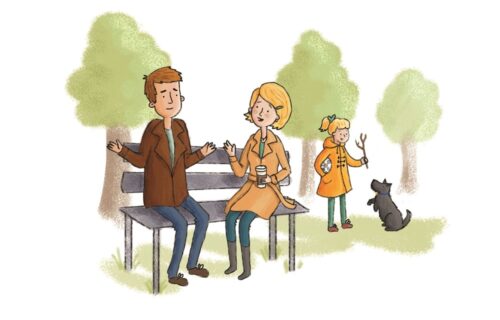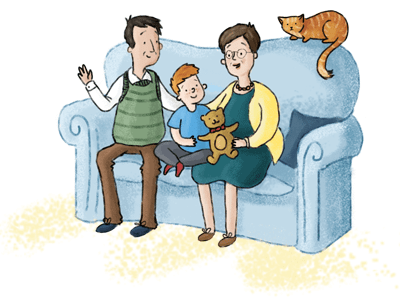
A third of marriages in England and Wales between 1964 and 2017 ended in divorce.
However, the rate changes according to how many years a couple have been together.
For example, of couples who married in 1967, only 31.9% had divorced by 2017.
Overall, within the last century, fewer people are getting married and more couples are cohabiting and having children outside of marriage.
Many people also now refer to their relationship as a “common law marriage”.
Yet they are shocked to realise there is actually no such thing under English and Welsh law.
There is a misconception that, if you have cohabited for many years, you have a “common law marriage”.
If you are living with your partner but are not married then you are a cohabiting couple, and you are not entitled to the same rights as a married couple.
Here’s an example:
A man and woman marry, and only the husband is named on the mortgage of the property because the wife was not working, as she was caring for their children. As a result, she didn’t have a good mortgage capacity nor any good credit history. A few years later, the marriage breaks down and the husband says he is going to sell the house.
What can the wife do?
She can apply through the Land Registry for Matrimonial Home Rights to the property, which will prevent the husband from selling without her consent, regardless of her not being named on the property deeds. As they are married, she has a ‘beneficial’ interest in the property.
However, were they not married, the woman would need to be able to prove that she has a ‘beneficial’ interest in the property and would only be able to place a Unilateral Notice on it to postpone a sale. The way she would need to try and prove her interest in the property would be through either a Deed, Resulting Trust or a Constructive Trust.
In other words, she will need to be able to prove she has also financially invested herself into the property and show evidence to confirm that her partner bought it to enjoy with her as their family home.
Therefore, if you are an unmarried couple, you will not enjoy the protection which the Matrimonial Causes Act 1973 provides to married couples. You will instead have to rely on the Trust of Land and Appointment of Trustees Act 1996 (TOLATA).
TOLATA gives courts certain powers to resolve disputes about the ownership of property (or land).
A TOLATA claim can be issued:
- To force the sale of land or property;
- To reoccupy a former family home when an ex-partner refuses to leave;
- By parents/grandparents wanting to recover their financial interest in the property;
- To determine the share you each own.
There are three main types of application that can be made under TOLATA to resolve disputes about land. These are:
- To order a sale of the property, enabling an owner to realise their financial interest;
- To decide who is entitled to occupy;
- To decide the nature and extent of the ownership of a property owned by two or more people.
Taken together, these applications permit a court to decide who are the legal and beneficial owners of a property, and in what proportions.
There are complementary powers in TOLATA that allow a court to direct the owner of land to behave in a certain way.
In disputes about co-ownership, these powers are used most frequently to require a
co-owned property to be sold so the proceeds can be divided.
How we can help
If you have recently split with a partner and are wondering what your legal rights are regarding your family assets, please get in contact with our experts today on our dedicated helpline 0161 331 3887 and ask about our free, 30-minute initial consultation.











